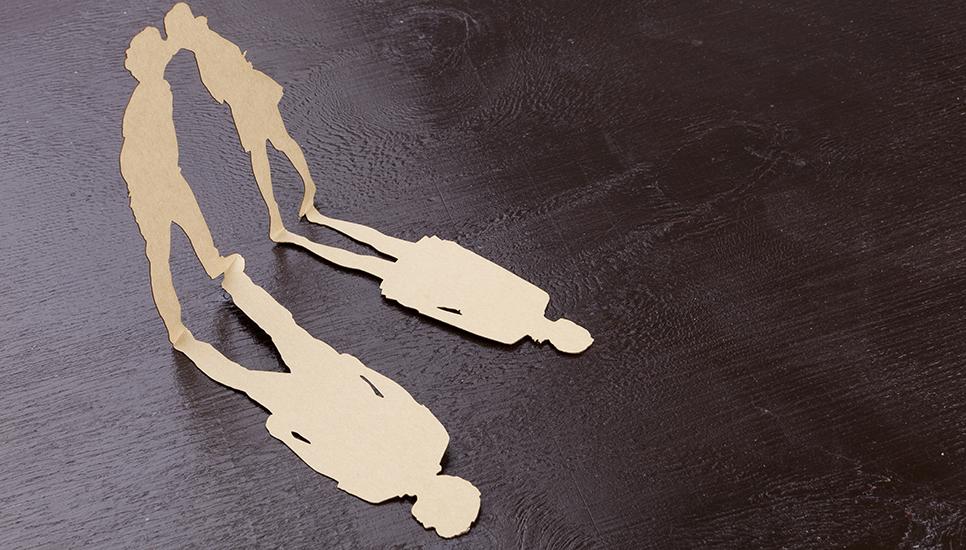The most recent divorce stats – another reason for non-court dispute resolution

Whilst there might be a genuine downturn in divorce it seems that the data might not be giving the full picture and the minimum waiting period requirement with the ‘no-fault’ divorce of 20 weeks between the application and conditional divorce, and then a further six weeks wait until the final divorce order could have influenced the data.
The data that is unsurprising is the average time of 42 weeks for divorce to reach first disposal. In practice, we commonly see these delays due to the court’s soaring backlog, which remains underfunded and in desperate need of reform. Clients want their divorce, finances and children matters to be dealt with as swiftly, efficiently, and as privately as possible. As such, where appropriate, we advise to consider out-of-court procedures which can provide finality and certainty earlier than the court route. They’re also usually considerably cheaper. Another very good reason for finding non-Court alternatives is the recent move towards ‘opening up’ the family Court and London is one of the chosen areas to allow journalists to attend hearings.
These processes are discussed in more detail below.
Mediation
A cheaper alternative which minimises delays and maximises the efficiency with which disputes can be resolved, is mediation. Mediation involves an impartial, trained and neutral third party, that works with the couple to identify the issues in dispute and find the most sensible and practical solutions in this regard, typically taking place over a series of meetings. Mediators must remain neutral throughout the process and cannot give legal advice. The mediator’s role is to encourage a constructive dialogue to achieve a settlement that both parties are happy with. If an agreement is reached, the parties will instruct their lawyers to formalise this agreement in a binding and enforceable Consent Order approved by the Court.
Mediation is particularly appropriate in children’s cases where some mediators are also trained to speak directly to the children in a confidential setting.

Collaborative Law
In collaborative law, the couple each appoint their own collaboratively trained lawyers to work with them by dealing with matters by way of four-way meetings; affording them the opportunity to resolve matters collaboratively with their lawyers assisting.
The couple and their lawyers agree that if the process fails, they will change lawyers. This is an incentive for everyone to try as hard as possible to settle. The collaborative process is also quicker as the couple have complete control over the running of the meetings, rather than having to adhere to strict court deadlines. However, this process heavily depends on the couple’s willingness to cooperate and will not be an appropriate in more acrimonious circumstances.
Private Financial Dispute Resolution Appointment (the second stage of the Court process)
Owing to backlogs in court listings, the couple may have to wait a significant time before a court-based hearing can take place. Even when the parties do attend the hearing, the judge will only have had a short period to review the financial information produced. An increasing number of people are engaging in private FDRs to achieve an earlier and better outcome. These hearings are without prejudice so cannot be referred to subsequently, if the case doesn’t settle.
The couple can choose their judge (usually a barrister or a former judge) and the hearing can be booked on any date, at short notice, and at a venue where coffee and decent sandwiches are provided! The judge will consider the evidence available in the case so far and hear submissions from the parties’ legal representatives in relation to their respective settlement offers. The judge will then give an indication of how they think the case should settle, which is often a key incentive. Whilst costly, private FDRs are a good alternative to the court route as it allows matters to be dealt with swiftly and efficiently.

Arbitration
Family Arbitration is litigation in that a decision is imposed on the couple by an independent arbitrator. Arbitration can take place at any stage once the Court process has begun and can be used to determine a discrete issue or to resolve the whole of the dispute. As such, arbitration may be useful as a supplement to mediation – i.e. if several issues have been agreed between the couple and there are still a few outstanding disputes. It is a uniquely bespoke and flexible service – the parties are in the driving seat as to how they want their arbitration to run but then control is handed over to the arbitrator.
Arbitrators are usually a specially trained barrister or retired judge who will hear the submissions before making a binding decision. The decision will be drawn up in a document and submitted to the Court. There is scope for appeal, which was not always the case.
Mediation, the collaborative process, private hearings or arbitration are all available and have different and unique qualities that can be explored by couples who don’t want to be at the mercy of our current quite appalling Court system.
Christina Pippas is an associate in the Family team at Collyer Bristow.






